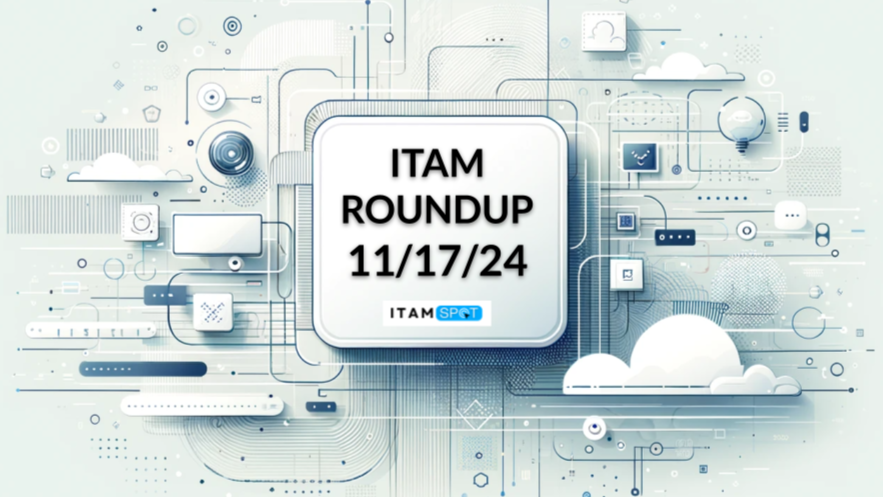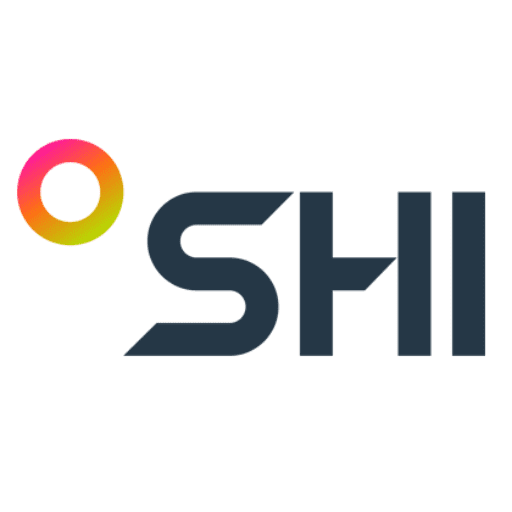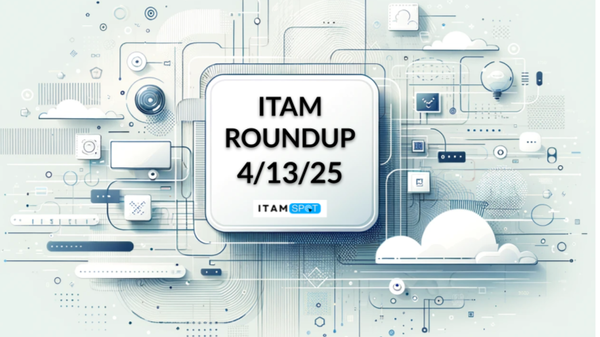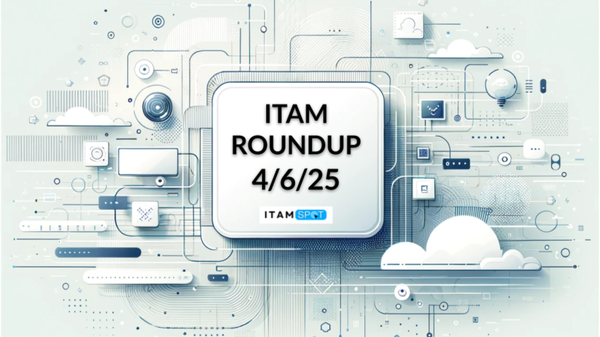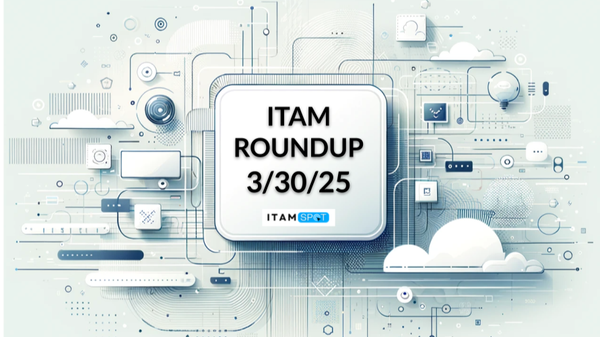The ITAM Roundup: 11/17/24
📰 News
Salesforce’s Recent Acquisitions: Innovation or Integration Headache?
Salesforce’s aggressive acquisition strategy, including recent additions like Airkit.ai, Tenyx, Own, and Zoomin, underscores its focus on purchasing innovation to fuel offerings such as its new AI-driven platform, Agentforce. While these acquisitions aim to bolster capabilities in areas like voice AI, data management, and unstructured data processing, challenges with integration could lead to fragmented user experiences, as seen with previous acquisitions like Slack and Tableau. This strategy, while innovative, raises concerns about the balance between rapid expansion and the seamless functionality customers expect.

Broadcom makes VMware Workstation and Fusion free for everyone
Broadcom has made its VMware Workstation and Fusion desktop hypervisors free for all users, including commercial production use, positioning them as freeware alternatives to tools like Oracle’s VirtualBox. While VirtualBox remains a robust and fully GPL3-compliant free software option, VMware's offerings are more feature-rich but not open source, creating a clear competitive dynamic. Broadcom's move might be aimed at enhancing its ecosystem appeal, leveraging the popularity of its tools to maintain customer loyalty despite desktop virtualization becoming a less profitable market.

Red Hat is acquiring AI optimization startup Neural Magic
Red Hat, owned by IBM, is acquiring Neural Magic, a startup specializing in optimizing AI models to run efficiently on commodity processors and GPUs, leveraging open source tools like vLLM for model serving. This acquisition enhances Red Hat's hybrid cloud-focused AI portfolio, enabling customers to deploy and optimize AI workloads across diverse cloud environments with improved performance, security, and scalability. Announced alongside other AI initiatives at KubeCon, this move aligns with Red Hat's goal to lead in open-source AI innovation amid growing industry demand for cost-effective AI optimization solutions.
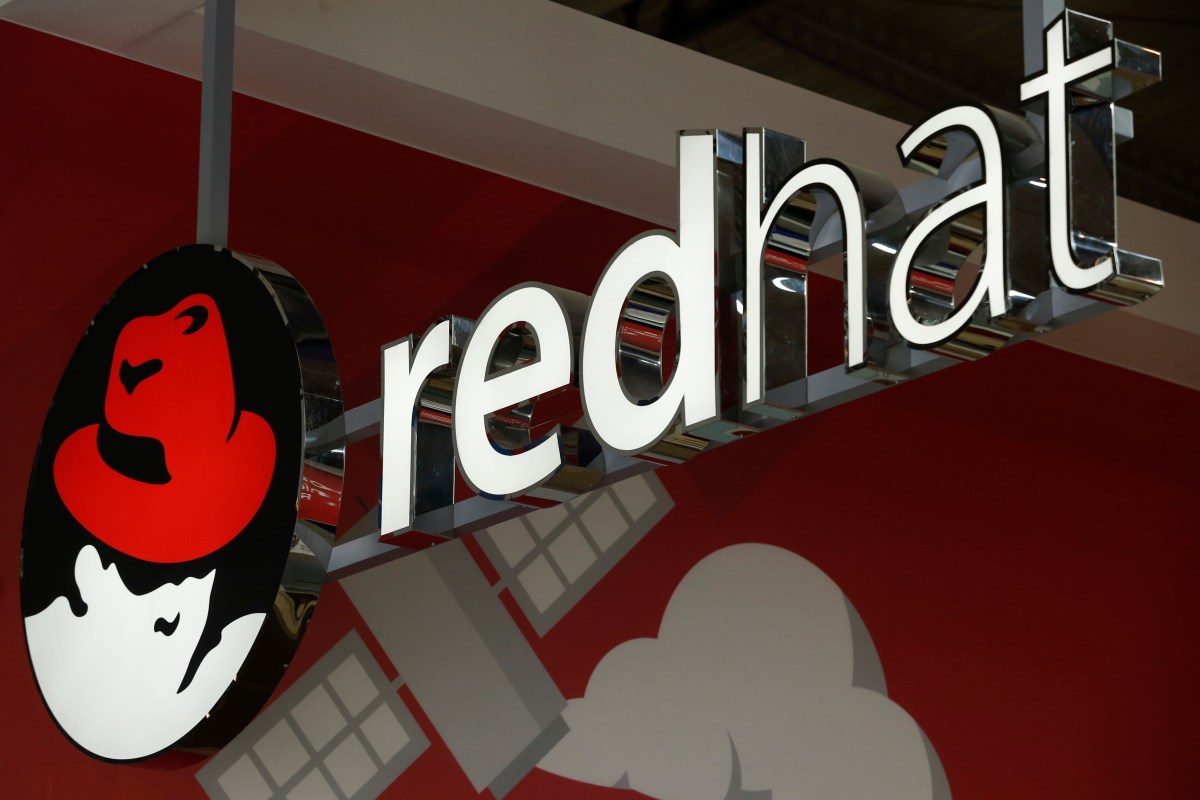
US finalizes $11.6B CHIPS Act financing agreement with TSMC
The Biden administration finalized a $11.6 billion financing deal under the CHIPS Act with Taiwan Semiconductor Manufacturing Co. (TSMC) to support the construction of a semiconductor fab complex in Arizona. The agreement includes $6.6 billion in grants and $5 billion in optional loans, marking the first major CHIPS Act financing deal and supporting TSMC's $65 billion investment in three factories, one of which is already producing chips for Apple. Additional CHIPS Act deals are expected soon, with GlobalFoundries among those likely to secure financing for expanding chip production capabilities in the U.S.
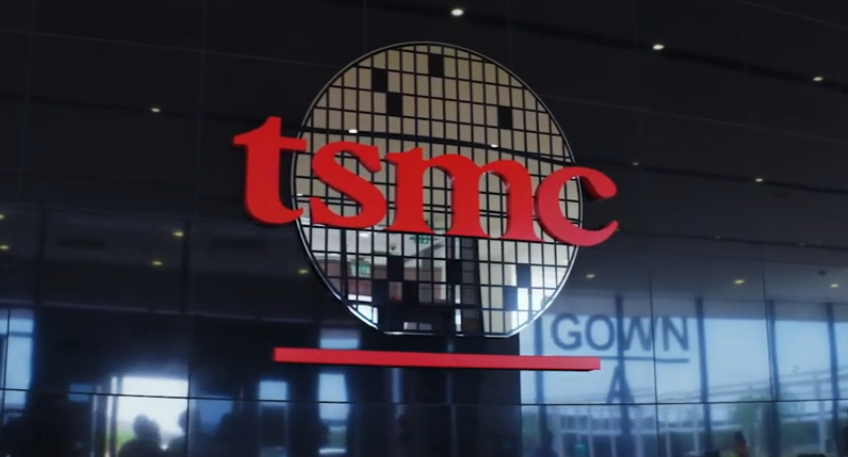
Red Hat aims to drive Kubernetes AI solutions forward with collaborative innovation
Red Hat is advancing Kubernetes-based AI solutions to bridge the gap between data scientists and software engineers, focusing on deploying, scaling, and democratizing large language models (LLMs). By establishing working groups on Serving and Device Management, Red Hat aims to optimize exotic hardware utilization and develop cost-effective, domain-specific AI models through collaborations like InstructLab with IBM. These efforts, discussed at KubeCon + CloudNativeCon NA, highlight Red Hat's commitment to leveraging open-source technologies for accessible and efficient AI solutions on Kubernetes.
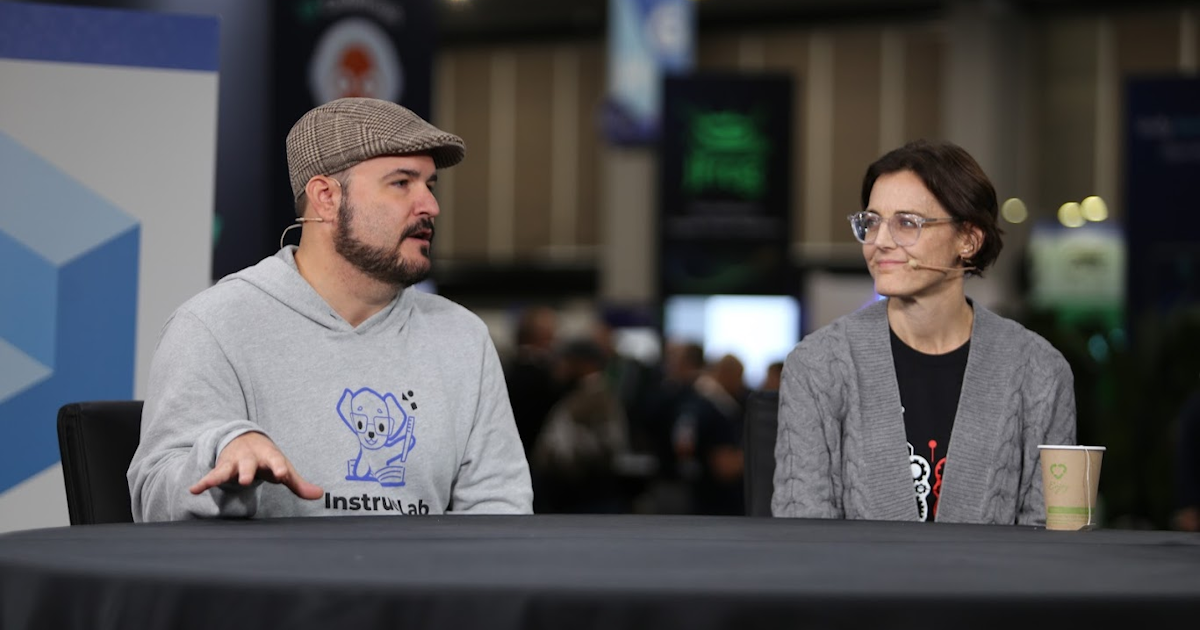
ScaleOps aims to take the frustration out of cloud management
ScaleOps, a FinOps startup co-founded by Yodar Shafrir and Guy Baron, aims to optimize cloud resource usage by automating cost and performance management for applications. Competing in a crowded market, ScaleOps offers a self-hosted solution that minimizes cloud service footprints across environments, appealing to companies prioritizing efficiency during economic slowdowns. With a growing customer base and $58 million in Series B funding, ScaleOps plans to expand its workforce and capitalize on the increasing adoption of FinOps practices, which now feature in over 80% of companies.

📖 Tips
WEBINAR: Transitioning to Adobe VIP Marketplace: Everything You Need to Know
(November 19, 2024 at 2 pm EST)
The Adobe VIP Marketplace is a new licensing program designed to streamline purchasing, provisioning, and billing for Adobe software licenses, providing a more efficient experience through partner-specific portals like SoftwareOne's Marketplace. While the transition from traditional subscription models to this dynamic portal-based system poses challenges, the program aims to prevent disruptions like missed renewals and simplify license management.

Here’s the 411 on upcoming Microsoft CSP licensing and pricing changes
Microsoft is introducing two changes to its Cloud Solution Provider (CSP) program: a new monthly billing option for Microsoft 365 Copilot, priced 5% higher than annual billing, starting December 1, 2024, and a 5% price increase for all annual term/monthly billing CSP SKUs, effective April 1, 2025. These changes will impact IT budgets, especially for organizations on monthly billing cycles, requiring adjustments and new purchasing strategies. SHI offers support through licensing reviews, budget planning, and ongoing consultation to help organizations navigate these changes and minimize financial impact.

How to Swap Licenses Using Group-Based Licensing
Microsoft’s shift of group-based licensing management from the Entra admin center to the Microsoft 365 admin center has introduced challenges in swapping licenses, particularly due to asynchronous processing and potential plan conflicts. To address this, the GraphLicenseManager PowerShell module simplifies license swaps through a GUI, enabling admins to manage licenses efficiently and minimize service disruptions. By leveraging Microsoft Graph APIs, the tool facilitates smooth transitions between licenses, such as resolving plan collisions or executing swaps in a single operation.

Why SaaS Backup Matters: Protecting Data Beyond Vendor Guarantees
SaaS backup is essential for businesses using cloud-based applications to safeguard against risks like accidental deletion, ransomware, and vendor failures, even if vendors offer some backup guarantees. IT departments should implement a SaaS backup strategy, particularly for critical applications like CRM or productivity suites, and use backup tools or export data as needed. With the growing reliance on SaaS, integrating these backups into overall recovery plans is crucial to prevent data loss and ensure business continuity.

🐛Bugs & Exploits
Palo Alto Networks warns of critical RCE zero-day exploited in attacks
Palo Alto Networks has issued a warning about a critical remote code execution (RCE) zero-day vulnerability (PAN-SA-2024-0015) affecting Next-Generation Firewalls' management interfaces, which is actively being exploited in attacks. The flaw, rated 9.3 in severity, allows unauthenticated attackers to gain unauthorized control over exposed firewalls, potentially compromising network security. Palo Alto Networks advises organizations to secure access to management interfaces by limiting exposure to trusted IP addresses and placing interfaces behind a VPN, though no security updates are yet available.


